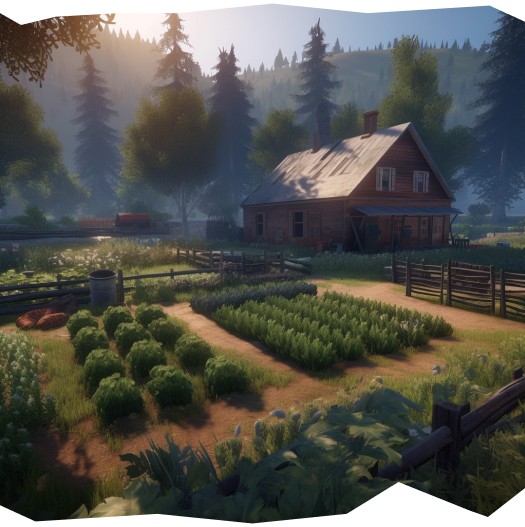

Food crisis in numbers
- Climate change and loss of biodiversity are big risks to our food supply. This is already causing some food prices to go up and making certain foods harder to find.
- We must limit global warming to prevent the worst damage to our health, food security, water supply, human security, and economic growth. Failing to limit global warming to 1.5 degrees will mean severe and widespread damage to crop yields and food security.
- Sustainable farming methods, such as organic farming, protect the environment, which is essential for producing food. Unsustainable farming is causing EU soils to lose 7.4 million tonnes of carbon annually, and loss in productivity thanks to degraded soils costs €1.25 billion each year.
- Agroecological creates more jobs than conventional farming.
- Industrial farming requires lots of inputs, including animal feed and synthetic fertilisers. It is vulnerable to global price shocks where more sustainable farming has shown signs of being more insulated from these shocks.

- Tackling the climate emergency through food makes a lot of sense. Emissions reduction pathways which focus on responsible consumption, including adopting diets with more low-GHG foods, have been shown to have the most clear co-benefits for eradicating poverty and tackling inequality, and the lowest number of trade-offs.
- The EU imports 25 million tonnes of soya for animal feed per year. Soya is responsible for 30% deforestation from EU diets.
- Between 2005 and 2017, some 3.5 million hectares of forest were destroyed to produce agricultural commodities for the EU market.
- A quarter of EU children are at risk of poverty or social exclusion.
- Food at school makes up more than 50% of energy intake for many pupils.
2030 targets for sustainable food production
Pesticides
Reduce the overall use and risk of chemical and hazardous pesticides
Nutrient losses
Reduce nutrient losses by 50% whilst retaining soil fertility, resulting in 20% less fertilisers
Antimicrobials
Reduce sales of antimicrobials for farmed animals and aquaculture
Organic farming
Increase the percentage of organically farmed land in the EU





How does the Farm to Fork strategy work?
The F2F strategy has six main goals:
- Ensuring sustainable food production
- Ensuring food security
- Stimulating sustainable food processing, wholesale, retail, hospitality, and food services practices
- Promoting sustainable food consumption and facilitating the shift to healthy, sustainable diets
- Reducing food loss and waste
- Combating food fraud along the food supply chain.

Sustainable food processing and distribution
The Farm to Fork Strategy will mobilise the food industry to increase the availability and affordability of healthy, sustainable food options. The goal is to reduce the overall environmental footprint of the food system and make the adoption of healthy diets easier.
The European Commission will take action to expand and promote sustainable production methods and circular business models in food processing and retail, including specifically for Small and Medium-sized Enterprises (SMEs).
The strategy sets out the following actions for sustainable food processing and distribution:
- Initiative to improve the corporate governance framework, including a requirement for the food industry to integrate sustainability into corporate strategies.
- Develop an EU code and monitoring framework for responsible business and marketing conduct in the food supply chain.
- Launch initiatives to stimulate reformulation of processed food, including the setting of maximum levels for certain nutrients.
- Set nutrient profiles to restrict promotion of food high in salt, sugars and/or fat.
- Proposal for a revision of EU legislation on Food Contact Materials to improve food safety, ensure citizens’ health and reduce the environmental footprint of the sector.
- Proposal for a revision of EU marketing standards for agricultural, fishery and aquaculture products to ensure the uptake and supply of sustainable products.

Sustainable food consumption and facilitating the shift towards healthy, sustainable diets
The Farm to Fork Strategy aims to improve the availability and price of sustainable food and to promote adoption of healthy and sustainable diets by consumers. Key elements include improving consumer information, strengthening sustainable food procurement and encouraging adoption of fiscal measures that support sustainable food consumption.
The strategy sets out the following actions:
- Proposal for a harmonised mandatory front-of-pack nutrition labelling to enable consumers to make health conscious food choices
- Proposal to require origin indication for certain products.
- Determine the best modalities for setting minimum mandatory criteria for sustainable food procurement to promote healthy and sustainable diets, including organic products, in schools and public institutions.
- Proposal for a sustainable food labelling framework to empower consumers to make sustainable food choices.
- Review of the EU promotion programme for agricultural and food products with a view to enhancing its contribution to sustainable production and consumption.
- Review of the EU school scheme legal framework with a view to refocus the scheme on healthy and sustainable food.

Sustainable food production
The Farm to Fork Strategy aims to reduce the environmental and climate impact of primary production whilst ensuring fair economic returns for farmers, fishers and aquaculture producers.
The strategy sets targets to significantly reduce the use and risk of chemical pesticides, the use of fertilisers and sales of antimicrobials as well as increase agricultural land under organic farming.
It will also seek to improve animal welfare, protect plant health and promote adoption of new green business models, circular bio-based economy and the shift to sustainable fish and seafood production.
The strategy foresees the following actions in order to ensure sustainable food production:
- Proposal for a revision of the Sustainable Use of Pesticides Directive to significantly reduce use and risk and dependency on pesticides and enhance Integrated Pest Management
- Revision of the relevant implementing Regulations under the Plant Protection Products framework to facilitate placing on the market of plant protection products containing biological active substances
- Proposal for a revision of the pesticides statistics Regulation to overcome data gaps and reinforce evidence-based policy making
- Evaluation and revision of the existing animal welfare legislation, including on animal transport and slaughter of animals
- Proposal for a revision of the feed additives Regulation to reduce the environmental impact of livestock farming
- Proposal for a revision of the Farm Accountancy Data Network Regulation to transform it into a Farm Sustainability Data Network with a view to contribute to a wide uptake of sustainable farming practices
- Clarification of the scope of competition rules in the TFEU with regard to sustainability in collective actions
- Legislative initiatives to enhance cooperation of primary producers to support their position in the food chain and non-legislative initiatives to improve transparency
- EU carbon farming initiative

Food loss and waste prevention
In the EU, nearly 57 million tonnes of food waste (127 kg/inhabitant) are generated annually with an associated market value estimated at 130 billion euros (Eurostat, 2022). Eurostat roughly estimates that around 10% of food made available to EU consumers (at retail, food services and households) may be wasted. At the same time, some 36.2 million people cannot afford a quality meal every second day (Eurostat, 2020). Food waste also has a huge environmental impact, accounting for 8-10% of global greenhouse gas emissions (UNEP Food Waste Index 2021) and about 5% of EU greenhouse gas emissions associated with the EU’s overall food consumption footprint.
Reducing food waste has enormous potential for reducing the resources we use to produce the food we eat. Fighting food waste is a triple win: it saves food for human consumption; brings savings for primary producers, companies and consumers; and lowers the environmental and climate impact of food production and consumption.
The EU is committed to achieving the global Sustainable Development Goal (SDG) Target 12.3 to halve per capita food waste at the retail and consumer level by 2030, and reduce food losses along the food production and supply chains.
Reducing food loss and waste is an integral part of the Farm to Fork Strategy action plan. The Commission will seek to step up action to prevent food loss and waste and will propose:
- legally binding targets to reduce food waste across the EU, by end 2023, defined against a baseline for EU food waste levels set following the first EU-wide monitoring of food waste levels.
- a revision of EU rules on date marking (‘use by’ and ‘best before’ dates), by end 2022.
The Commission will also further integrate food loss and waste prevention in other EU policies, investigate and explore ways of preventing food losses at the production stage, and continue to mobilise all players, notably by encouraging implementation of the recommendations for action of the EU Platform on Food Losses and Food Waste
